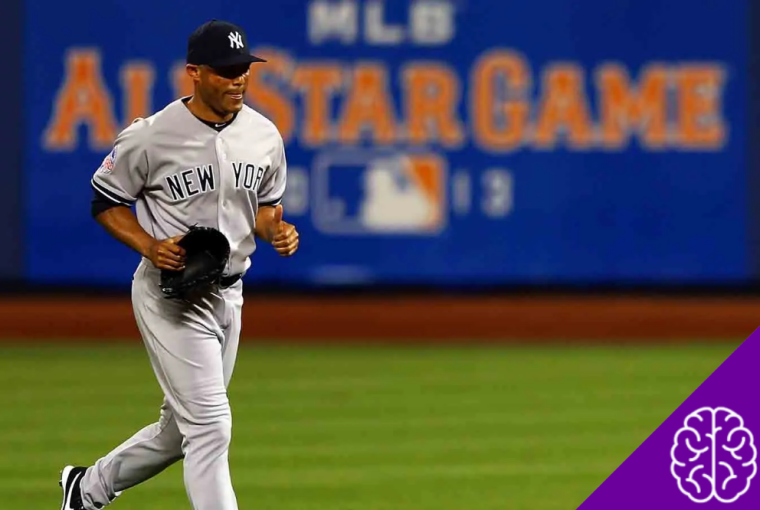The MLB All-Star Game represents more than just a mid-season exhibition. Since 1933, this annual showcase has delivered unforgettable moments, record-breaking performances, and legendary matchups that continue to captivate baseball fans worldwide.
Whether you’re a casual observer or a devoted statistics enthusiast, the rich history of the Midsummer Classic offers fascinating insights into America’s pastime.
From Babe Ruth’s historic first All-Star home run to Shohei Ohtani’s unprecedented dual role as both pitcher and position player, the All-Star Game has consistently produced stories that transcend the sport itself. These carefully curated facts reveal the remarkable achievements, surprising records, and compelling human drama that have shaped nearly a century of All-Star competition.
Prepare to discover which Hall of Famer holds the most surprising All-Star record, learn about the only grand slam in game history, and explore the unique circumstances that have made certain All-Star Games truly unforgettable.
The Origins and Evolution of the All-Star Game
The first All-Star Game took place at Chicago’s Comiskey Park in 1933, marking the beginning of what would become baseball’s premier mid-season event.
The American League secured a 4-2 victory in that inaugural contest, with Babe Ruth providing the perfect opening act by launching a two-run home run in the bottom of the third inning.
The format and presentation have evolved significantly since those early days. Originally, National League players wore gray NL uniforms while American League players donned their respective team’s home uniforms.
This created a unique visual distinction that highlighted the league rivalry central to the game’s appeal.
Between 1959 and 1962, Major League Baseball experimented with hosting two All-Star Games each season, a decision that explains why Hank Aaron holds the record for most All-Star selections (25) despite playing only 23 seasons.
This brief period of dual games created some statistical anomalies that still influence All-Star records today.
The game has faced interruptions only twice in its history. World War II travel restrictions canceled the 1945 contest, while the COVID-19 pandemic forced cancellation of the 2020 game. These rare cancellations underscore how significant global events can impact even baseball’s most established traditions.
Record-Breaking Performances and Individual Achievements
Willie Mays stands as the All-Star Game’s most prolific offensive performer, accumulating 23 hits across his 24 All-Star appearances. His 82 plate appearances also represent the most in game history, demonstrating both his longevity and consistent selection to National League squads.
The pitching records reveal equally impressive achievements. Don Drysdale leads all hurlers with 19⅓ innings pitched and 19 strikeouts in All-Star competition.
His eight All-Star selections allowed him to accumulate these remarkable totals while consistently performing at the game’s highest level.
Mariano Rivera’s four All-Star Game saves reflect his dominance during the late innings of these contests.
The Yankees closer’s ability to preserve leads in pressure-packed situations made him invaluable to American League managers throughout his career.
Derek Jeter achieved a rare double by winning both All-Star Game MVP and World Series MVP in 2000, the only player to capture both honors in the same season. This accomplishment highlights Jeter’s ability to excel in baseball’s most high-profile moments.
Rare Feats and Historic Moments
Fred Lynn’s grand slam in 1983 remains the only bases-loaded home run in All-Star Game history. The dramatic blast scored Manny Trillo, Rod Carew, and Robin Yount, giving the American League a commanding 9-1 lead that effectively decided the contest.
Ichiro Suzuki provided the game’s only inside-the-park home run in 2007, showcasing his exceptional speed and the unique dimensions of that year’s host ballpark.
This rare achievement stands alone in All-Star annals and demonstrates Ichiro’s distinctive skill set.
Three players have delivered walk-off home runs to end All-Star Games: Ted Williams (1942), Stan Musial (1955), and Johnny Callison (1964). These dramatic conclusions created some of the most memorable moments in All-Star history, with each homer providing a perfect ending to the respective contests.
The longest All-Star Game occurred in 2008 at Yankee Stadium, lasting four hours and 50 minutes across 15 innings.
This marathon contest tied the record for most innings played, originally set in 1967, and tested the endurance of both teams’ rosters.
Family Connections and Unique Relationships
Three father-son combinations have both homered in All-Star Game history: the Guerreros (Vladimir Sr. and Jr.), the Bonds family (Bobby and Barry), and the Griffeys (Ken Sr. and Jr.).
These multi-generational achievements highlight baseball’s hereditary nature and the rare talent that can span decades.
Five sets of brothers have appeared as All-Star teammates, with the most recent being Wilson and William Contreras in 2022 for the National League.
The Alomar brothers (Roberto and Sandy) accomplished this feat in consecutive years (1991-1992) for the American League.
Pete Rose holds the unusual record for playing the most positions in All-Star Game history with five: first base, second base, third base, left field, and right field. This versatility reflected Rose’s willingness to contribute wherever needed and his diverse skill set.
Casey Stengel managed the most All-Star Games with 10 appearances while also owning the record for most managerial losses with six.
His counterpart, Walt Alston, holds the record for most managerial wins with seven, creating an interesting contrast between these legendary skippers.
Modern Era Developments and Current Records
Shohei Ohtani made history in 2021 by becoming the first player to start an All-Star Game as both a hitter and pitcher.
His unprecedented dual role reflects the modern game’s evolution and his unique two-way abilities that haven’t been seen since Babe Ruth’s early career.
The 2025 All-Star Game features the Detroit Tigers with six representatives, the most of any team despite the franchise’s recent struggles. This demonstrates how individual talent can flourish even within rebuilding organizations.
Clayton Kershaw and Mike Trout currently lead active players with 11 All-Star selections each, showcasing sustained excellence throughout their careers. Freddie Freeman’s 2025 selection brings him to nine appearances, tying him with several other active stars.
The American League has dominated recent All-Star competition, winning 10 of the last 11 games heading into 2025.
This recent success contrasts with historical parity and reflects the current competitive balance between the leagues.
Championship Connections and Strategic Impact
From 2003 to 2016, the All-Star Game winner determined World Series home-field advantage, adding significant strategic importance to what had been purely an exhibition.
The American League won seven of the first eight such games, demonstrating their early adaptation to this higher-stakes format.
Interestingly, the team with the most All-Star representatives hasn’t won the World Series since the 2021 Atlanta Braves.
This suggests that All-Star quantity doesn’t necessarily translate to championship success, as team chemistry and health often matter more than individual accolades.
The statistical leaders in various offensive categories tell fascinating stories. Stan Musial’s six All-Star home runs lead all players, while his three walk-off homers contributed to some of the game’s most dramatic conclusions.
Your Gateway to All-Star Excellence!
The MLB All-Star Game continues evolving while honoring its rich traditions. These 50 facts represent just a fraction of the stories, records, and memorable moments that have accumulated over nine decades of All-Star competition.
Whether you’re preparing for this year’s festivities or simply appreciate baseball history, these insights demonstrate why the Midsummer Classic remains one of sports’ most compelling annual events.
From Babe Ruth’s inaugural blast to Shohei Ohtani’s modern two-way mastery, the All-Star Game consistently produces moments that define careers and capture imaginations.
Stay tuned to this year’s All-Star Game—you might witness the next record-breaking performance or unforgettable moment that will join this incredible collection of baseball history!


